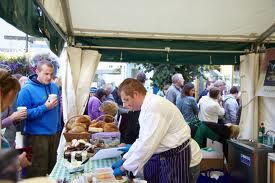Food Tourism: Introduction
 The definition of food tourism is straightforward and there is no dramatic contrast among various definitions offered by various authors. A typical definition of food tourism would is like a “visitiation to primary and secondary food producers, food festivals, restaurants and specific locations for which food tasting and/or experiencing the attributes of specialist food production regions are the primary motivating factors for travel” (Buhalis and Costa, 2006, p.137). To make it more simple, it can be stated that food tourism is travelling to other destinations in order to consume their food.
The definition of food tourism is straightforward and there is no dramatic contrast among various definitions offered by various authors. A typical definition of food tourism would is like a “visitiation to primary and secondary food producers, food festivals, restaurants and specific locations for which food tasting and/or experiencing the attributes of specialist food production regions are the primary motivating factors for travel” (Buhalis and Costa, 2006, p.137). To make it more simple, it can be stated that food tourism is travelling to other destinations in order to consume their food.
First of all, there is a consensus among the vast majority of authors the works of whom have been studied as a part of literature review that the topic of food tourism is not new. At the same time, “yet it is such an integral part of the experience that it is only in recent years that it has become a subject of study on its own right” (Hall and Sharples, 2003, p.1).
Gretzel et al (2010) link this recent rise of popularity of food tourism to technological advancement in general, and the increasing role of internet in particular, by stating that once it became easier for people to get information of various types from internet including culinary and cuisine of other nations, more and more people started to travel to other countries for the sake of trying their food.
Moreover, some authors have offered explanations about the growth of food tourism by stating the importance of the tourism destination. Specifically, it has been stated that “as the motivation to experience food and while travelling growth, destinations with appropriate levels of food and wine resources are able to develop increasingly sophisticated food and wine experiences, which may lead to the emergence of gourmet tourism” (Chen, 2009, p.165)
Among a few works that analyse the popularity of fish and chips in UK from a scientific viewpoint can be mentioned a work by Hudman and Jackson (2003). However, even this work has mainly a describing nature and lacks depth of analysis. Specifically, there are no attempts at establishing reasons of popularity of fish and chips as well as analysis of factors affecting the choice of food.
Moreover, there are some studies that evaluate the role of governments and initiatives they are proposing taking into account the economic benefits of food tourism to any destination. For instance, in case of UK it has been stated that “while state intervention in agriculture policy and the economic context for agricultural production has been long established, a new policy framework that integrates support for farming together with rural development…has became evident in food tourism initiatives across the United Kingdom” (Slocum and Everett, 2010, p.745)
